News
The food industry’s single-use packaging problem
12 Dec 2023
The food industry’s reliance on single-use packaging is a sustainability “sticking point” with viable alternatives not widely available – but new EU rules mean food businesses will remain responsible for the collection and disposal of the packaging they put on the market, says one legal expert.
Environmental, Social and Governance (ESG) regulation is far from a new topic but new measures being implemented by the European Commission will make environmentally friendly and socially responsible operations all the more important for food businesses.
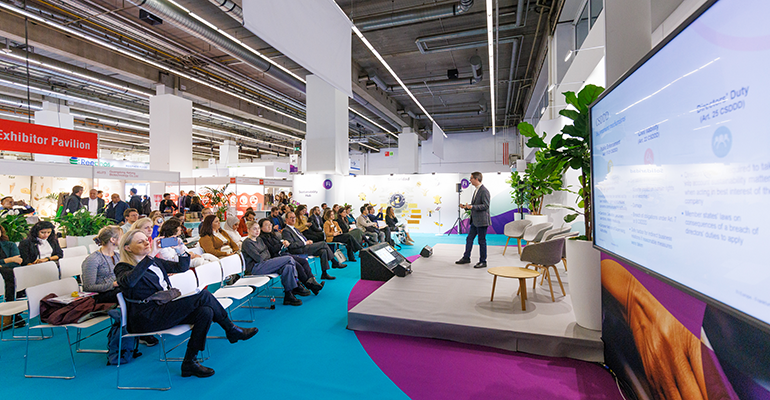
At Fi Europe, Nicolas Carbonnelle, Partner at Bird & Bird LLC, a law firm specialising in legislation for the food sector, lifted the lid on what these latest ESG regulations will mean to the industry and what sort of timeframe will be necessary.
Since 2019, EU regulators have worked towards a series of ESG priorities aiming to create a European Green Deal, with a broad roadmap that targets biodiversity and forests, agriculture and food, greener cities and a circular economy.
EU regulation on sustainable food systems under construction
The EU’s legislative proposal on Sustainable Food Systems was due to be implemented in the third quarter of 2023, but is currently postponed, with no clear indication of when the legislation will be implemented at the current moment, mainly because there are still several gray areas to iron out.
“But while there are the EU measures, there are also a lot of initiatives going on at national level, including countries like Norway, France and Germany,” said Carbonelle. “We also have a lot of EPR (Extended Producer Responsibility) schemes in place, which tend to bring a more harmonised approach in the face of the national initiatives, which don’t always align.”
When it comes to key stages of a food product’s life, the ESG legislative can be split up into key stages of a food product’s life cycle. These include sourcing, processing, packaging the final product, transportation, consumption, collection and, finally, disposal.
Sustainable sourcing: Single-use plastic is a ‘sticking point’
When looking at the first element – sourcing – Carbonelle pointed to the importance of all elements of sustainability, but in particular the fact that agriculturally produced materials and packaging should be from deforestation-free sources, to comply with the latest ESG legislation.
“This regulation applies both to products procured within the EU and outside it,” Cabonelle said. “There are some strict sanctions in place and breaching of deforestation regulations can expose companies to fines that could be relatively high.”
One of the topics that was high up on the agenda on sourcing was single-use packaging, particularly the sort used for restaurant foods. However, Carbonelle said this has proved such a sticking point that it has been taken off the agenda because it did not match up with the reality of the market. This is due to the fact that viable alternatives to single-use packaging are not widely available yet.
Waste collection and disposal
At the other end of the food cycle is waste collection and disposal, particularly of packaging materials, which Carbonelle highlighted as another key element in the overall sustainability equation.
“Whenever you produce packaging and put it out on the market, the new regulations mean that you will remain responsible for that packaging,” said Carbonelle. “Food businesses need to make sure that packaging is returned as much as possible and is integrated into a workable recycling scheme.”
As part of this goal, the EU is implementing legislation in December 2024 to ensure EPR schemes are established for all food packaging materials. This will mean obligations to comply with a list of requirements, including establishing a waste management and prevention plan and providing an indication of the packaging’s environmental footprint.
CSDDD and governance
Following on from sourcing and disposal, Carbonelle pointed to governance, specifically the Corporate Sustainability Due Diligence Directive (CSDDD). Recital 4 of the legislation’s sustainability objectives states: “It is also in the interest of companies to protect human rights and the environment, in particular given the rising concern of consumers and investors regarding these topics.”
Cabonelle stated that the CSDDD will be charged with improving corporate governance practices, increasing corporate accountability for adversities, improving access to remedies, and complementing other sustainability measures that might be enforced.
The scope of the CSDDD will touch on both large and medium-sized EU companies, as well as large and medium-sized non-US companies, which entails an estimated 17,000 food companies. However, this proposal is under review and could well be amended before it is implemented.
The CSDDD will also have a number of obligations, including integrating due diligence in policies, identifying adverse impacts, preventing/ending adverse impacts, establishing a complaints procedure and monitoring and communication the whole process. This will also be backed up with enforcement mechanisms that will touch on public enforcement and civil liabilities as well as directors’ duties.
Currently the text of the CSDDD has been read by parliament and the Council and has now gone to the Commission for agreement.
Carbonelle said: “Once the Commission has agreed on the text of the legislation, it can be voted in and get published, with the text ready by the end of 2025. Two years after this the text will become effective for larger companies, followed by smaller companies four years later.“
Related news

Walmart Marketplace’s record growth prompts search for UK sellers
26 Sep 2025
Walmart’s third-party e-commerce platform, Marketplace, has witnessed extraordinary growth – but a need for more product diversity has prompted the retailer to recruit UK sellers.
Read more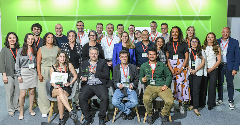
The winners of Vitafoods Europe Startup Challenge 2025 revealed
29 May 2025
Four startups – Yomio Drops, PFx Biotech, Revobiom, and Favamole – took top prizes at this year’s Vitafoods Europe Startup Challenge awards.
Read more
East takes on West in the fight for future food flavours
30 Apr 2025
Asian and South American flavours are now key components on global menus, driven by a growing global appetite for culinary mashups.
Read more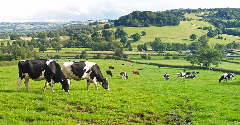
Food companies urged to bring ‘joy’ and urgency to healthy food mission
14 Mar 2025
For too long, businesses have treated health and sustainability as separate agendas – but there is growing evidence to show diets that benefit human health can also enhance that of the planet, say experts.
Read more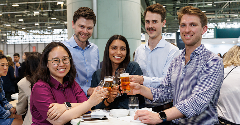
Entries open for inaugural Vitafoods Europe Innovation Awards
29 Jan 2025
Entries are open for the inaugural Vitafoods Europe Innovation Awards, celebrating the ingredients, finished products, partnerships, and initiatives redefining the nutraceutical landscape.
Read more
Paris Olympics: Food and beverage brands champion health, fun, and sustainability
5 Aug 2024
Food and beverage brands are aligning with the Paris Olympics 2024 Food Vision, which emphasises sustainability, local sourcing, and plant-based diets.
Read more
Natural Remedies: Bringing health and happiness via validated branded ingredients
18 Apr 2024
Natural Remedies is an internationally renowned botanical healthcare company committed to advancing the field through rigorous research and the development of clinically validated Branded Ingredients. Guided by our foundational principle of ‘BEING USEF...
Read more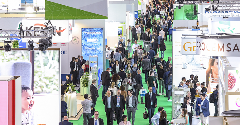
Exploring the future of health and wellness retail at Vitafoods Europe
14 Mar 2024
With retail-focussed content sessions, buyer networking, and finished product tasting sessions, this year’s Vitafoods Europe offers a not-to-be-missed opportunity for retailers to up their health and wellness game.
Read more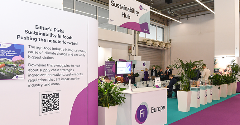
Sustainability meets innovation at Fi Europe 2023's Sustainability Ingredients Zone
9 Jan 2024
Fi Europe’s Sustainable Ingredients Zone showcases ingredients forging a path toward a greener future. Three innovators are redefining what sustainability within the food and beverage industry means, with upcycled products, regenerative agriculture, an...
Read more
Unleashing the power of plants at Fi Europe’s New Product Zone
5 Jan 2024
In the diverse landscape of plant-based innovation, Fi Europe 2023's New Product Zone spotlighted ten plant-based ingredients, tailored to meet the rising demand for sustainable and delicious options.
Read more